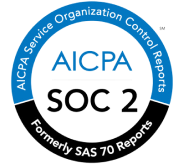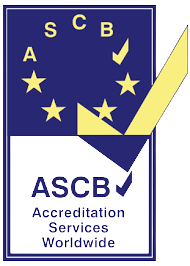Table of Content
- Introduction
- 18 Top HR Priorities in 2024 to Focus On
- Talent Acquisition and Retention
- Diversity, Equity, and Inclusion (DEI)
- Employee Well-being and Mental Health
- Remote Work Policies and Hybrid Models
- Technology Integration in HR Processes
- Learning and Development
- Performance Management and Feedback
- Succession Planning and Leadership Development
- Employee Experience and Engagement
- Compliance and Regulatory Changes
- AI and Automation in HR Processes
- Workplace Safety and Health Measures
- Flexible Benefits and Total Rewards
- Agile HR Practices
- Data Privacy and Security
- Conflict Resolution and Mediation
- Sustainability and Corporate Social Responsibility (CSR)
- Global Workforce Management
- Conclusion
- FAQs
Introduction
Stepping into 2024 is going to be more exciting than ever for the HR fraternity and professionals. There are going to be new technologies and new trends to battle against and set new benchmarks at the workplaces. Amidst that, emotional intelligence, AI, and automation of the mundane tasks is going to win the race. However, it’s important to equally highlight other top HR priorities in 2024 which HR leaders and professionals have to be ready to face like pros of their fields and industries.
So, delve into this article below and know more about these priorities in 2024 which a smart HRMS software India can help tackle within a set deadline.
Also read:
What's The Role Of HR Manager In HR Digital Transformation?
Want to skip the content?

18 Top HR Priorities in 2024 to Focus On
Talent Acquisition and Retention
Focusing on attracting and retaining top talent through innovative recruitment strategies and employee engagement initiatives.
Diversity, Equity, and Inclusion (DEI)
Prioritising efforts to create a diverse and inclusive workplace, ensuring equal opportunities for all employees.
Employee Well-being and Mental Health
Implementing comprehensive well-being programs and providing support for mental health to foster a healthy and productive work environment.
Remote Work Policies and Hybrid Models
Adapting to the evolving work landscape by establishing clear policies for remote work and hybrid work arrangements.
Technology Integration in HR Processes
Leveraging advanced HR technologies, such as AI-driven analytics and automation, to enhance efficiency and decision-making.
Learning and Development
Investing in continuous learning and development programs embedded in a modern and mobile-enabled HR software in India to upskill employees and drive career growth.
Performance Management and Feedback
Implementing effective performance evaluation processes and providing regular feedback to employees for continuous improvement.
Succession Planning and Leadership Development
Identifying and nurturing future leaders within the organisation to ensure seamless transitions and sustainable growth.
Employee Experience and Engagement
Focusing on creating a positive work culture, enhancing employee experience, and promoting a sense of belonging.
Compliance and Regulatory Changes
Staying updated with evolving employment laws and compliance requirements to mitigate risks and ensure legal adherence.
AI and Automation in HR Processes
Embracing artificial intelligence and automation technologies to streamline administrative tasks, allowing HR professionals to focus on strategic initiatives.
Workplace Safety and Health Measures
Ensuring a safe and healthy work environment for employees, with a particular emphasis on adapting to new health and safety regulations.
Flexible Benefits and Total Rewards
Offering customised benefits packages that cater to the diverse needs and preferences of employees, beyond traditional healthcare and retirement plans.
Agile HR Practices
Adopting agile methodologies within the HR function to respond swiftly to changing business needs and market dynamics.
Data Privacy and Security
Ensuring compliance with data protection regulations and safeguarding employee data through robust security measures and policies.
Conflict Resolution and Mediation
Developing effective conflict resolution strategies and providing mediation resources to foster a harmonious workplace environment.
Sustainability and Corporate Social Responsibility (CSR)
Integrating sustainable practices and social responsibility initiatives into the company culture to meet the expectations of socially conscious employees.
Global Workforce Management
Navigating the complexities of managing a diverse global workforce, including compliance with international labour laws and cultural sensitivities.
Conclusion
As we venture into 2024, HR professionals must be prepared to navigate a dynamic landscape and meet their top HR priorities with automation and smartness of AI tech.
Prioritising talent acquisition, employee well-being, technological integration, and fostering a positive company culture will be pivotal in achieving organisational success.
By staying attuned to these top HR priorities and enabling HR software in India into their organisations, companies can forge a path towards sustainable growth and prosperity.
FAQs
Q: How can companies ensure a diverse workforce in 2024?
A: Companies can prioritise diversity and inclusion by implementing inclusive hiring practices, providing training on unconscious bias, and creating a supportive work environment for employees of all backgrounds.
Q: What are some effective ways to support employee mental health?
A: Offering employee assistance programs, providing access to mental health resources, and promoting open conversations about mental health are effective strategies.
Q: How can HR departments leverage technology for recruitment?
A: HR departments can use AI-powered tools for resume screening, virtual reality simulations for skill assessments, and chatbots for initial candidate interactions.
Q: What role does employee well-being play in talent retention?
A: Employee well-being directly impacts retention. A healthy, supported workforce is more likely to stay engaged and committed to their organisation.
Q: How can HR professionals use analytics to enhance decision-making?
A: HR professionals can use analytics to identify trends in recruitment, performance, and employee engagement, allowing them to make informed, data-driven decisions.












